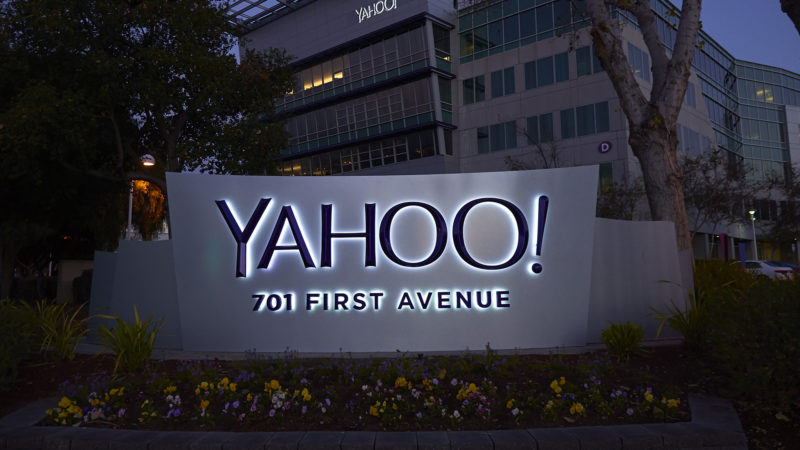Yahoo Announces It Will Spin Out Main Business Rather Than Alibaba Assets
In a reversal, Yahoo announced this morning that it will abandon its planned spinoff of its remaining Alibaba shares and instead do a “reverse spinoff” of the rest of Yahoo. The reason the Alibaba spinoff was scrapped was uncertainty over tax liability. Originally, Yahoo thought the Aabaco (Alibaba + Yahoo Small Business) spinoff would have […]
In a reversal, Yahoo announced this morning that it will abandon its planned spinoff of its remaining Alibaba shares and instead do a “reverse spinoff” of the rest of Yahoo. The reason the Alibaba spinoff was scrapped was uncertainty over tax liability.
Originally, Yahoo thought the Aabaco (Alibaba + Yahoo Small Business) spinoff would have limited or zero tax implications for the company. But the Internal Revenue Service declined to provide that reassurance, creating uncertainty and resulting in today’s decision. The Alibaba shares will still be separated from the main Yahoo business, resulting in two publicly traded companies — just not in the way originally intended.
Here’s an excerpt from Yahoo’s public statement:
Yahoo! Inc. today announced that its Board of Directors, after careful review and consideration of how to best drive long-term value for shareholders, has unanimously decided to suspend work on the pending plan, announced in January of 2015, to spin off the company’s remaining holdings in Alibaba Group Holding Limited. The Board will now evaluate alternative transaction structures to separate the Alibaba stake, focusing specifically on a reverse of the previously announced spin transaction.
In the reverse spin off, Yahoo’s assets and liabilities other than the Alibaba stake would be transferred to a newly formed company, the stock of which would be distributed pro rata to Yahoo shareholders resulting in two separate publicly-traded companies.
Yahoo is now under intense pressure from selected institutional investors to generate more shareholder value through a sale of some or all of the company’s “core assets.”
Yahoo’s current market cap is about $33 billion, but most of that is the Alibaba shares and the company’s part ownership of Yahoo Japan. Yahoo has roughly $6 billion in cash, but the core business is only being valued by the market at roughly $3 billion based on a perception that its advertising business has stalled.
Yahoo CEO Marissa Mayer has pointed to increasing revenue in Yahoo’s “MaVeNS” cluster of assets (mobile, video, native and social) as a way to tell a growth story about the company. But investors have been unpersuaded.
Reportedly, a number of companies could be in the running should Yahoo decide to sell itself. They include Verizon, InterActive Corp and Comcast, among others. Yesterday, the Verizon CEO and CFO publicly stated the company, which bought AOL this year for $4 billion, would take a look at a possible Yahoo acquisition if there were “a strategic fit.”
Opinions expressed in this article are those of the guest author and not necessarily MarTech. Staff authors are listed here.
Related stories
